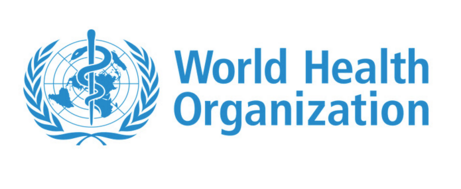WHO Director−General’s opening remarks at the media briefing on COVID−19 − 6 November 2020

- Today, WHO and UNICEF are jointly launching an emergency appeal to rapidly boost measles and polio vaccination. We estimate that $655 million US dollars is needed to address dangerous immunisation gaps in children in non-Gavi eligible countries.
- As the pandemic unfolds, as countries have reflected, they have used intra action reviews to make their responses stronger. An Intra-Action Review uses a whole-of-society, multi-sectoral approach, acknowledging the contributions of all relevant stakeholders involved in COVID-19 preparedness and response at the national and sub-national levels.
- Intra-Action Reviews not only help countries improve their COVID-19 response but also contribute towards their long-term health security. To date, 21 countries have completed them and others are in pipeline.
- Today we are happy to welcome the Ministers of Health from Indonesia, the Kingdom of Thailand and South Africa to share their experience and lessons from COVID-19.
Good morning, good afternoon and good evening.
In the summer, Africa was certified as wild polio free. This marked one of the greatest public health achievements of all time.
Driven by millions of health workers reaching every child repeatedly with an effective vaccine and a unique partnership between WHO, UNICEF, Rotary, CDC, the Bill & Melinda Gates Foundation and Gavi – global polio eradication remains achievable.
However, the COVID-19 pandemic hurt momentum as polio and immunization efforts were suspended.
This left children, especially in high-risk areas, more vulnerable to killer diseases like polio, measles and pneumonia.
And now we’re starting to see outbreaks of these diseases.
We need to turn the tide quickly and ensure no child is left behind.
Today, WHO and UNICEF are jointly launching an emergency appeal to rapidly boost measles and polio vaccination.
While the world watches intently as scientists work to ensure safe and effective vaccines are developed for COVID-19, it is important to ensure that all children receive the lifesaving vaccines that are already available.
We estimate that $655 million US dollars is needed to address dangerous immunisation gaps in children in non-Gavi eligible countries.
This is a global call to action for all donors to stay the course and not to turn their backs on the poorest and most marginalized children in their hour of need.
===
While the COVID-19 pandemic continues to evolve, we must take all opportunities to learn and improve the response as we go.
Many countries heard our call back in January when we rang our highest alarm by calling a public health emergency of international concern.
They worked closely with us and followed the parameters set out in the strategic response plan that WHO outlined on the 4 February.
They’ve conducted reviews, shared data and experience and honed their response to their national experience and unique situation on the ground.
As the pandemic unfolds, as countries have reflected, they have used intra action reviews to make their responses stronger.
This kind of self-analysis review is what the world called for during World Health Assembly back in May.
An Intra-Action Review uses a whole-of-society, multi-sectoral approach, acknowledging the contributions of all relevant stakeholders involved in COVID-19 preparedness and response at the national and sub-national levels.
By reviewing and adapting the current preparedness and response strategies and identifying what is working well and what needs to be strengthened, the review gives countries the opportunity to change the trajectory of the pandemic.
Intra-Action Reviews not only help countries improve their COVID-19 response but also contribute towards their long-term health security.
To date, 21 countries have completed them and others are in pipeline.
Today we are happy to welcome the Ministers of Health from Indonesia, the Kingdom of Thailand and South Africa to share their experience and lessons from COVID-19.
I would like to first introduce his excellency the Deputy Prime Minister and Minister of Health of the Kingdom of Thailand Anutin Charnvirakul.
The floor is yours, your excellency.
===
Thank you Minister for those insightful remarks and lessons regarding Thailand’s response.
I would now like to welcome his excellency, Minister of Health of South Africa, Dr. Zwelini Mkhize.
Your excellency, the floor is yours.
===
Minister, thank you for sharing South Africa’s determined efforts to tackle COVID-19.
I would now like to turn to the Minister of Health of Indonesia, Dr. Terawan Agus Putranto.
Your excellency, the floor is yours.
===
Thank you Minister Putranto for sharing Indonesia’s efforts to suppress COVID-19.
===
By conducting reviews in real-time and sharing lessons to the world, these three countries have reflected a blueprint for how countries can suppress COVID-19 and break the chains of transmission.
You can do exercises, you can do simulations, but the best time to look at your emergency response capacity is when an emergency is happening.
That is when you can clearly see what works, what doesn’t and what you need to improve.
There’s hope and now is the time to double down on efforts to tackle this virus.
Wherever a country is in terms of the outbreak, countries can turn it around by driving a whole-of-government and whole-of-society response.
It’s never too late.
While we invest and test vaccines to prove they’re safe and effective, I encourage all countries to learn from Thailand, South Africa, and Indonesia and work to suppress this virus today with the tools in hand that we know work.
We can save lives and livelihoods and end this pandemic, together.
I thank you.





